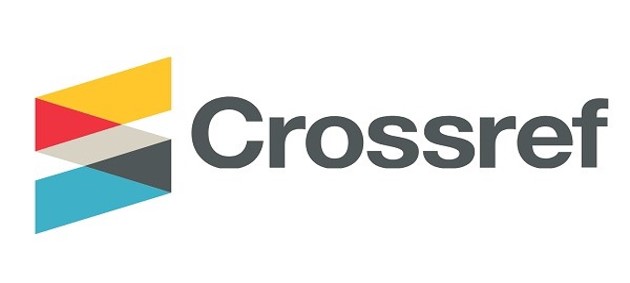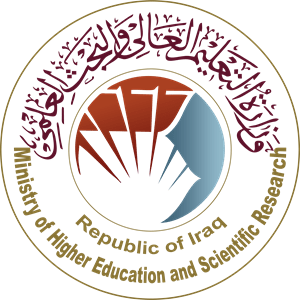The Extent of Applying ISO 14001 Requirements in the Environmental Auditing Practices of Iraq
DOI:
https://doi.org/10.51173/jt.v3i3.342Keywords:
Environmental, Auditing, ISO 14001, Petroleum CompaniesAbstract
The research aims to evaluate the environmental auditing practices in the petroleum sector of Kurdistan Region of Iraq by measuring the application of ISO 14001 requirements, diagnosing the main environmental auditing practices, reducing the negative effects of the organization's activities on the environment and complying with local and international laws related to the environment. Also, determining the most important weaknesses in environmental auditing practices of the petroleum companies in Kurdistan region of Iraq. Therefore, the importance of this research stems from the value of applying the requirements of ISO 14001 in environmental auditing practices to enhance sustainability, reduce pollution, conserve the environment, and reduce the negative effects of the organization's activities. The researcher designs a questionnaire according to the ISO 14001 requirements in order to evaluate the quality of environmental auditing practices in a sample of petroleum companies. The researcher concludes that the level of environmental auditing practices in Iraq is acceptable, and the ISO 14001 requirement can be applied easily with some instructions, institutional awareness, governmental follow-up and public review.
Downloads
References
Ingole, S. (2012). Environmental Auditing: Its Benefits and Counterance, International Journal of Science Innovations and Discoveries 2(5), 152 -156.
Cook, W., Bommel, S., Turnhout, E. (2016). Inside Environmental Auditing: Effectiveness, Objectivity, and Transparency, Current Opinion in Environmental Sustainability, Vol.18, 33-39.
Todea, N., Stanciu, I., and Joldoş, Ana M. (2011). Environmental Audit, a Possible Source of Information for Financial Auditors, Annales Universitatis Apulensis Series Oeconomica, 13(1), 66-74.
Leal, L. (2016). Opportunities for the Implementation of Good Practices of Governance and Accountability for Tracking and Auditing Sustainable Development Goals in Latin America, AC-Colombia.
Toepfer, K. (2004). Environmental Auditing and Sustainable Development: SAI Matter, International Journal of Audit, 32(2), 1- 4.
Thabit, Thabit H., Aldabbagh, Lukman M., and Ibrahim, Laith K. (2019), The Auditing of Sustainable Development Practices in Developing Countries: Case of Iraq, Revista AUS, 26(3), 12-19.
Yusoff, H., Mohamed, A., and Hadi, A. (2016). Sustainable Development: What Is the Role of Audit?, Journal of Sustainability Science and Management, 11(1), 99-112.
GAO (1995). Environmental Auditing: A Useful Tool That Can Improve Environmental Performance and Reduce Costs, Washington: RCED, United States General Accounting Office.
Strange, T., and Bayley, A. (2008). Sustainable Development: Linking Economy, Society, Environment, OECD publications.
Thabit, Thabit H., Ishhadat, Heba S., and Abdulrahman, Omar T. (2020). Data Governance Based on COBIT2019 Framework to achieve Sustainable Development Goals, Journal of Techniques, 2(3), 9-18.
Maletic, M., Maletic, D., and Gomiscek, B. (2012). An Organizational Sustainability Performance Measurement Framework, the 8th WSEAS International Conference on Energy, Environment, Ecosystems and Sustainable Development, University of Algarve, Faro, Portugal.
Marwa, M., Salhi, B., and Jarboui, A. (2020). Environmental Audit and Environmental Disclosure Quality, Scientific Annals of Economics and Business, 67(1), 1-23.
Iatridis, G. (2013). Environmental Disclosure Quality: Evidence on Environmental Performance, Corporate Governance and Value Relevance, Emerging Markets Review, 14, 55-75.
Abba, M., Said, R., Abdullah, A., and Mahat, F. (2018). The Relationship between Environment Operational Performance and Environmental Disclosure of Nigerian Listed Companies. Journal of Environmental Accounting and Management, 6(1), 1-15.
Braam, G., and Peeters, R. (2018). Corporate Sustainability Performance and Assurance on Sustainability Reports: Diffusion of Accounting Practices in the Realm of Sustainable Development, Corporate Social Responsibility and Environmental Management, 25(2), 164-181.
Dos Santos, C., and Aguiar, A. (2019). ISO 14001 and International Trade, Independent Journal of Management & Production, 10(1), 22-40.
Arena, M., Azzone, G., Platti, M. (2012). ISO14001: Motivations and Benefits in the Italian Metal Industry, International Journal of Engineering Business Management, 4(41), 1-9.
Arimura, T., Darnall, N., Ganguli, R., and Katayama, H. (2016). The Effect of ISO 14001 on Environmental Performance: Resolving Equivocal Findings, Journal of Environmental Management, Vol. 166, 556-566.
Bansal, P., and Hunter, T. (2003). Strategic Explanations for the Early Adoption of ISO 14001, Journal of Business Ethics, 46(3), 289-299.
Bellesi, F., Lehrer, D., and Tal, A. (2005). Comparative Advantage: The Impact of ISO 14001 Environmental Certification on Exports.
Chung, S., Fryxell, G., and Lo, C. (2005). Corporate Environmental Policy Statements in Mainland China: To What Extent Do They Conform to ISO 14000 Documentation?. Environmental Management, 35(4), 468-482.
Daddi, T., Frey, M., De Giacomo, M., Testa, F., and Iraldo, F. (2015). Macroeconomic and Development Indexes and ISO 14001 Certificates: A Cross National Analysis, Journal of Cleaner Production, Vol. 108, 1239-1248.
De Oliveira, O., Serra, J., and Salgado, M. (2010). Does ISO 14001 Work in Brazil?. Journal of Cleaner Production, 18(18), 1797-1806.
Djekic, I., Rajkovic, A., Tomic, N., Smigic, N., and Radovanovic, R. (2014). Environmental Management Effects in Certified Serbian Food Companies. Journal of Cleaner Production, Vol.76, 196-199.
ISO (2014). International Organization for Standartization, ISO 14001 Continual Improvement Survey, Survey Design.
Downloads
Published
How to Cite
Issue
Section
License
Copyright (c) 2021 Thabit H. Thabit

This work is licensed under a Creative Commons Attribution 4.0 International License.

















